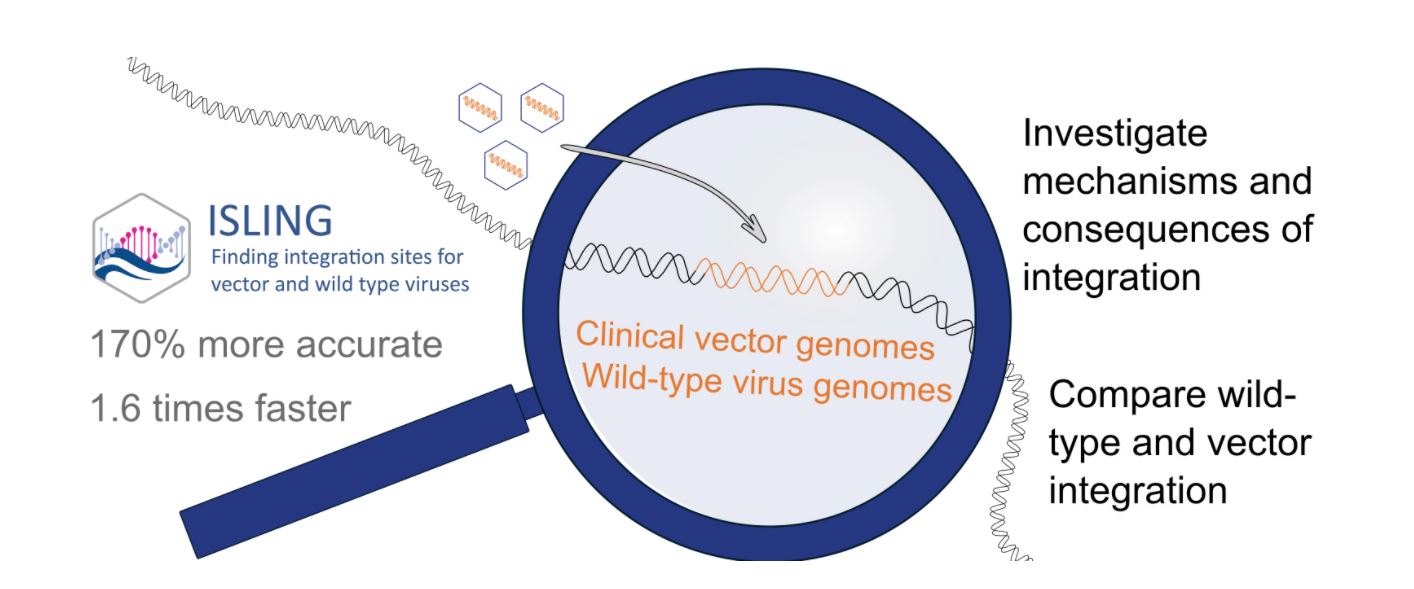Isling: Our tool for finding viruses faster and with more accuracy
Scientists at CSIRO’s AEHRC recently published a tool called isling that can help investigate cancer-causing viruses and further the safety of gene therapies.
The human genome is littered with remnants of ancient viruses, where part or all the virus’ genetic blueprint has integrated into the host’s genome. While we don’t yet know if ancient viruses cause disease, we know their modern relatives, such as human immunodeficiency virus (HIV), do.
Viral integration has captured the attention of scientists recently for its potential involvement in cancer. Here, a viral infection with normal or “wild-type” viruses, such as human papillomavirus or hepatitis B, can lead to an integration event at a genomic location that in turn can cause cancer.
The growing field of gene therapy is another area in which gene integration is of interest. In gene therapy, modified viruses, called vectors, are used to transport a therapeutic gene to replace a dysfunctional one. Sometimes, the integration of the vector can be a strategic mechanism of the therapy. At other times it is an unintended side-effect.
In both examples given, the first step in investigation into the interactions between viral and host genomes is to identify the presence of integrations, where they are on the host gene and the part of the virus that was integrated. Until now, gathering such information was limited because the tools available could only measure either wild-type or vector virus integrations efficiently.
Recently, however, we published isling, the first tool designed specifically to identify both wild-type and vector viruses in genome sequencing data. This application-agnostic tool is shown to be 170% more accurate and 1.6 times faster than other viral integration tools.

ISLING faster and more accurate than alternative viral integration tools.
There are currently several proposed future applications of isling:
- assessing the safety of gene therapy vectors by identifying any potentially dangerous integrations,
- investigating the role of viral integrations in cancer,
- comparing the integration properties of vectors and their wild-type virus counterparts.
If you’re interested in isling, you can find the code on GitHub, pre-built Docker containers on Docker Hub, and read our paper.
The Australian e-Health Research Centre (AEHRC) is CSIRO's digital health research program and a joint venture between CSIRO and the Queensland Government. The AEHRC works with state and federal health agencies, clinical research groups and health businesses around Australia.
